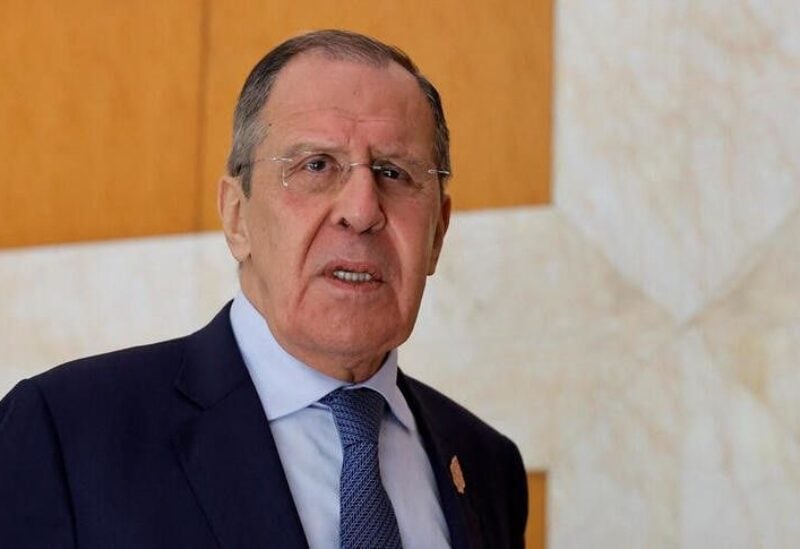
Russian Foreign Minister Sergei Lavrov walks after a bilateral meeting at the G20 Foreign Ministers' Meeting in Nusa Dua, Bali, Indonesia, July 8, 2022. REUTERS/Willy Kurniawan/Pool/File Photo
Sergei Lavrov, the foreign minister of Russia, will start an African tour in Egypt on Sunday in an effort to capitalize on the thirst for non-Western alliances as Moscow fights back against criticism from other nations over the conflict in Ukraine.
Lavrov will meet with authorities in Egypt who are attempting to reconcile their close ties to the United States and their strong ties to Russia. The United States and other Western nations moved to isolate Russia with severe sanctions following its invasion of Ukraine on February 24.
After meeting Arab League members in Cairo, he will travel to Ethiopia and Uganda, two countries whose relations with the West have come under strain, as well as Congo Republic.
Egypt has significant strategic and economic ties with Russia, which has been a key source in recent years of wheat, weaponry and – until the war complicated travel – tourists.
This week, Russian state-owned energy corporation Rosatom started long-delayed construction on Egypt’s first nuclear plant, the largest Russian-Egyptian project since the Aswan High Dam on the Nile was completed in 1970.
Those ties have caused angst with Western states, a group of which petitioned the Egyptian government and the Arab League ahead of Lavrov’s visit not to play into Russia’s version of events in Ukraine, diplomats said.
Kyiv and the West say Russia is waging an imperialist land grab in Ukraine, putting the global economy and food security at risk. Russia says it is conducting a “special military operation” against dangerous nationalists, blaming Western sanctions for a worsening food crisis.
Egypt’s relationship with the United States remains central, and in line with the West’s position it has turned away at least one Russian shipment of wheat that Ukraine said had been stolen from occupied lands.
But the Western stance on the war has gained limited traction in the Arab world and Africa, where governments are receptive to non-Western alternatives, said H.A. Hellyer of the Royal United Services Institute, a UK think tank.
Egypt “identifies that the world is becoming more and not less multipolar, and it doesn’t want to limit itself to a relationship that privileges the West above all else,” he said.
In an interview with Russian state media on Wednesday, Lavrov emphasised the Soviet Union’s support for decolonisation during the Cold War, and Moscow’s work to restore links in Africa since the Soviet Union collapsed, saying a second Russia-Africa summit was planned for next year.
“We have never schooled them (African states), we have always helped them solve problems that allow them to live in their country the way they want,” he said, depicting a contrast with what he portrayed as U.S. efforts to steer countries in the region away from Russia and China.
In Africa, Russia has found openings to restore its influence by offering security assistance with fewer conditions than the West and political cover from Western criticism, said Theodore Murphy, Africa director at the European Council on Foreign Relations.
One country in which it has built ties is Ethiopia, where relations with the West soured after conflict broke out in the northern region of Tigray in 2020, causing the European Union to suspend budget support and the United States to suspend a trade deal giving Ethiopia preferential market access.
Ethiopia, Africa’s second most populous nation, is seeking to liberalise its sclerotic state-run economy.
Relations between oil-rich Uganda and the West have also frayed over alleged human rights abuses by state security forces, election violence and rampant corruption.
As African states look to alternatives they face a “negligible to non-existent” cost in forging ties with Russia, given the West’s reluctance to draw down aid and development funding in the region, said Murphy.